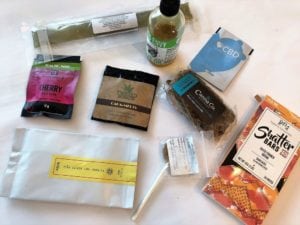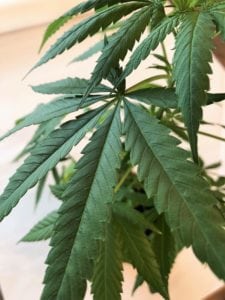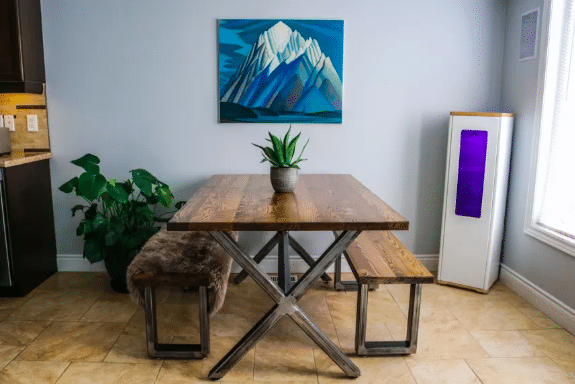Cannabis. Pot. Weed. Ganja. Marijuana. Dope. Mary Jane. Skunk. Herb. Reefer. Grass. No matter you call it, it’ll soon be legal in Ontario, and it will have major implications for real estate.
We’ve put together this guide about everything you need to know about the legalization of pot in Ontario and how it impacts homeowners, buyers and sellers. (If you’re a landlord, stay tuned for a special blog post just for you).
Cannabis Legalization in Ontario: The Basics
Post-legalization, the size of the marijuana market in Canada is projected to be $9 billion per year, and including ancillary markets, up to $20 billion. [NB: our research did not confirm whether that includes increased Doritos and Twinkies sales.] As one of the first countries to legalize recreational pot, Canada is still figuring out a lot of the details. But here’s what we know so far about pot legalization in Ontario:
- Two laws affect legal cannabis: the federal Bill C-34 and Ontario’s Bill 174. They address pot possession, growing, sale, marketing, sponsorship, packaging and penalties. Municipalities will additionally have the power to opt out of retail sales within their boundaries. I don’t expect Toronto will choose to opt out.
 On October 17th, 2018, it will be legal for adults 19+ years of age to possess up to 30 grams (one ounce) of marijuana – that’s equal to about 40-70 joints, depending on the size of the joint.
On October 17th, 2018, it will be legal for adults 19+ years of age to possess up to 30 grams (one ounce) of marijuana – that’s equal to about 40-70 joints, depending on the size of the joint.- It will also be legal to have up to 4 pot plants per residence. In case you’re wondering, one plant grown indoors can yield ¼ pound of pot, depending on the lighting source and growing conditions. Grown outside, it’s not unreasonable to expect one pound of weed per plant. (NB: to be legal in Ontario, the plants must originate from licensed seed or seedling providers.)
- In Ontario, marijuana will be available for sale online as of October 17, 2018, and will be able to be purchased in retail shops next year. The Ontario Cannabis Store will be the sole wholesale distributor to approved retailers.
- Edible marijuana products (e.g. pot brownies, gummies or lollipops) won’t be legal to possess or consume until fall 2019.
- If you get caught selling marijuana, possessing more than 30 grams of weed, having more than four plants or distributing to minors, penalties will range from fines to jail.
- Legit, medical cannabis users are not affected by the new legislation.
- The same consumption rules that apply to alcohol and cigarettes will apply to marijuana…so if you can’t smoke or drink somewhere now, you won’t be able to consume marijuana there either.
- It’ll be illegal to smoke pot and drive, in much the same way as it is illegal to drink and drive.
- As of writing, implementation is ongoing – so we don’t yet have all the answers to all the questions, or know, for example, if Toronto will allow pot to be grown in gardens. We’ll do our best to update this guide as answers become available.
Pot Legalization: Implications for Real Estate Q&A
Cannabis legalization in Ontario brings with it a lot of considerations and implications for homeowners, buyers, sellers and landlords. Following, you’ll find a Q&A addressing some of the main ones:
Will pot legalization affect my home insurance?
We don’t yet know how Ontario’s home insurance industry will react to legalized pot. Will they increase premiums if you admit to growing pot? Will they cancel your policy? What happens if you don’t admit to growing pot and make a claim…will it nullify your policy? I think it’s safe to assume that when you get a new insurance policy or renew an existing one, your insurer will ask if you are growing cannabis in your home. Legalized pot is new, and time will tell if insurers eventually consider it on par with brewing beer at home or growing an indoor garden of petunias.
Can growing pot damage my home?
There’s no doubt that many homes have been seriously damaged in the past by illegal marijuana grow-ops. There are lots of examples where the increased moisture and high humidity required to grow pot resulted in mold, fungus, poor air quality and health problems for future owners.
BUT: It’s important to note that most of the grow-op horror stories we hear about were the result of illegal commercial operations that didn’t control moisture and venting, and/or overloaded the electrical circuits. No doubt, there’s a difference between growing 10,000 pot plants in an abandoned house and growing 4 plants in the home you live in.
Pro tip: If you’re going to grow pot at home, invest in an energy efficient, moisture- controlled and self-ventilating unit. [this one looks cool: Gobro One Hydroponic Grow Box]
Will I be able to get financing for a home where pot was grown?
As much as you think you ‘own’ your home, if you’re like most people, the bank owns it right alongside you. The lender who holds your mortgage wants to protect their investment too, and ensuring there aren’t any major issues in the home is crucial to that. Banks have traditionally not mortgaged former grow-ops, but they’ve been silent so far on any ramifications of legalized pot on financing.
How are condos affected by cannabis legalization in Ontario?

Edibles: Where there’s pot, there’s not always smoke!
Many condo boards have been actively working to put in place new rules and bylaws to deal with pot legalization. Here’s what you need to know about condos:
- Many Toronto condominiums have chosen to go completely smoke-free, meaning that both marijuana and tobacco cigarettes will be banned in common spaces as well as individual condo units and private balconies.
- In the absence of a cannabis smoke-free rule in your building, every condominium has rules that prevent owners from being a nuisance to others – so if your condo neighbour is making Cheech and Chong seem conservative, talk to your property manager.
- Medical cannabis users living in condominiums will need to prove that they have a medical need and cannot ingest it in another format. In addition, they may be required to install ventilation in the unit.
- Also good to know: many condominiums are putting in place rules that prevent the Concierge from accepting marijuana deliveries..so that online order might not be easy to receive.
If you have any questions about what your condominium board is doing about pot legalization, ask your property manager or one of the board members.
I’m buying a condo. Can I smoke cigarettes or marijuana in it?
Whether or not you can smoke in your condo or on your balcony will be dictated by your condo board and the rules they’ve put in place. Make sure you know the rules BEFORE you make an offer. If the condo has gone smoke-free and the previous owner was a tobacco smoker, it’s possible that they were grandfathered under the new rules and you will not be able to smoke cigarettes in your condo. Don’t make any assumptions.
How will property values be affected by legalized pot?
There’s long been a stigma associated with buying former marijuana grow-op homes, and studies have shown that they sell for 15-20% less than comparable homes. The drop in value is likely the result of mold, humidity issues, electrical re-wiring, previous associations with organized crime, lower buyer demand or issues in obtaining insurance and financing. The responsible Ontario home grower – with 4 or fewer plants – in a legalized world, will approach their plants quite differently.
Earlier this year, a survey found that 47% of people thought that even a legal amount of marijuana grown in a home would reduce their desire to buy a property. As it becomes more commonplace for pot plants to be seen in homes, I expect/hope that there will be a minimal negative effect on property values.
Interestingly, we’ve seen property values INCREASE in other cities where recreational pot is legal. In one study, homes located near legal dispensaries saw as much as an 8% increase over their neighbours (you can read more about that study here). In Denver, Colorado, recreational marijuana stores drove up home values by an average of $27,000 in the immediate area after legalization.
I’m considering buying a home where pot was grown…what should I be worried about?

- Home Insurance – It’s too soon to know if you will encounter any issues getting home insurance, so it’s best to be upfront and honest with your insurer before you agree to purchase the home. Insurers have been hesitant to insure former grow-ops, so how will they respond when it’s legal? Higher premiums? Policy exclusions?
- Financing – Check with your lender before making any offers, to ensure they will finance the property. I expect the lenders will take a position on this soon and it probably won’t be a big deal, but in the meantime, better to be upfront and honest.
- Damage to the home – Is there any existing damage related to the previous growing of pot? Should you have any additional inspections done?
- Smells – If the previous owners were smoking pot indoors, what will have to be done to the home to rid it of smells? Will you need to repaint, replace the carpets and get new curtains?
Once pot is legalized in Ontario, I want to grow 4 plants. As a homeowner, what do I need to know?
- Hydro: Growing pot takes a lot of light, so be ready for the hydro bills. Better yet, invest in an energy-efficient system to speed things along.
- Home Insurance: Check with your insurance company to see if growing pot will affect your premiums or coverage. And never lie to the insurance company – the only thing worse than not having home insurance is thinking you have it and doing something so they can refuse to pay out a claim. Know before you grow.
- Smells and damage: Are you prepared for the impact of smells, potential mold and fungus damage to your investment? Do your research on water, light and ventilation and know what you’re getting into so you can do it smartly. And as a REALTOR, I need to tell you: don’t even think of smoking pot (or anything else) indoors.
- Disclosures: You may need to disclose your pot growing to future Buyers. Time will tell if this becomes a requirement.
- Condos: If your new home is a condo, there are extra concerns – see above.
I’m putting an offer on a home in the post-pot legalization world. What do I need to know?
- Due diligence – If you’re working with a knowledgeable REALTOR, they’ll perform additional due diligence on any home you’re considering buying. They’ll want to know: Has cannabis been grown in the home? If yes, how much? Have there been any issues related to hydro, mold or fungus in the home? Have there been any insurance or financing issues related to the growth of marijuana?
- The offer: Your REALTOR’s job is to protect you and there are special clauses that can be added to the Agreement of Purchase and Sale to increase your protection. As always, our advice is to work with an agent in-the-know.
I’m a Landlord. How does cannabis legalization affect me?
We’ve dedicated an entire blog to considerations for landlords. Read Cannabis Legalization: What Landlords Need to Know.

I’m selling my home in the post-pot legalization world. What do I need to know?
- Disclosures: What do you need to disclose to the Buyer? Is the fact that you have 3 marijuana plants something you need to tell them? You can read more about disclosures here, but as a reminder:
- Patent defects don’t need to be disclosed as they can be seen or discovered by the Buyer/their agent/an inspector
- Material latent defects can’t be seen and must be disclosed
- Inclusions: Are the pot plants in the garden included in the sale? In most sales, the pine tree is included, and so is the rosebush. What about the pot plant?
- Home Preparation: Nobody likes the smell of pot (except maybe Pepe Le Pew) and if your home smells like pot, expect to have fewer interested Buyers and in all likelihood, you’ll sell it at a lower price. If you’ve been smoking pot indoors, get the house repainted, the carpets cleaned or replaced and consider getting an Ozone bomb to neutralize the smells in your home.
- Showings: While the home is being shown for sale, should you hide the plants? How many Buyers will be frightened away by a 4-foot tall marijuana plant? It’s always good practice to remove all valuables from your home to protect them from theft at a showing or at an open house, and of course, you don’t want a child accidentally ingesting a pot gummy.
In closing:
- Pot legalization is happening fast in Ontario and we’re finding more about how it will be implemented every day. This blog was accurate at the time of writing (August 14, 2018), but things may have changed)
- I’m not a lawyer. I’ve done my best to research and report, but nothing in this blog should be construed as legal advice.
- Yes, I’m a REALTOR, but you should always check with your own REALTOR about any questions pertaining to your individual situation.
And finally, for the Mel Brooks fans out there…I bring you MIGHTY JOINT:


Maryanne says:
So if I bought a condo prior to registration does that mean the no smoking pot or tobacco does not apply as it is grandfathered till the next buyers
Melanie Piche says:
It totally depends on the condo corporation…
G says:
Bill C 45 not Bill C 34